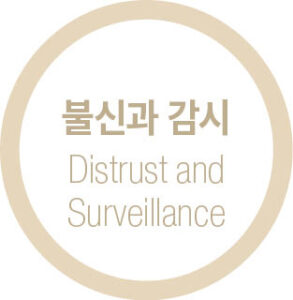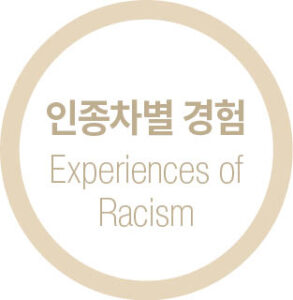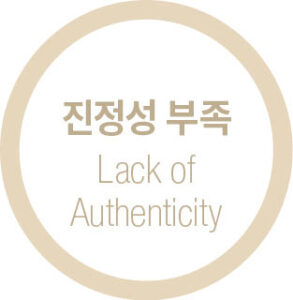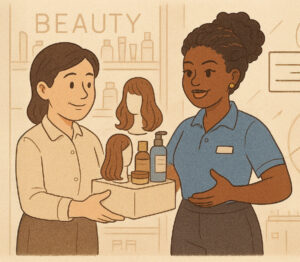
Across the U.S., a jobs crisis is unfolding. With the shadow of a recession looming, rising unemployment, and a cooling labor market, many industries are struggling. Among them, the beauty supply industry faces unique challenges that require a slightly different perspective. The ideal candidates are more than just a pair of hands. They take on specialized roles and carry specific responsibilities—whether as experienced managers who understand store operations, frontline workers who function like a well-oiled machine, or reliable part-timers who step in during peak hours. There’s no one-size-fits-all approach to staffing needs, as they vary depending on a store’s size, location, and customer base. As a result, general labor market statistics don’t capture the unique realities of the beauty supply sector. Unfortunately, there’s no clear solution in sight. Right now, the most urgent concern for beauty supply owners across the country is finding the right people. It’s essential to take a closer look at why hiring has become so difficult—and what conditions are standing in the way.
Part 1. Inside the Candidate Drought
1) Work intensity and environment
One of the most commonly cited reasons is the demanding nature of the job. Employees often work long hours on their feet and are required to do heavy lifting. When this is combined with the rudeness of some customers, it creates a challenging—and often unbearable—work environment. Exposure to violent crime in the beauty supply industry also has a significant negative impact. Years of repeated thefts, threats, and robberies have contributed to the strong perception that the industry is unsafe.
2) A broken internal cycle, a lost labor flow
The beauty supply industry once had its own internal employment cycle. It was common for workers to start at a wholesaler to stabilize their immigration status, then transition to a retail store—or even open one themselves. This pathway allowed many foreign workers to establish themselves in the U.S. and build stable careers, while also serving as a reliable labor pipeline for employers. However, this cycle has significantly weakened in recent years. At the center of the shift is a reduction in the number of H-1B visas issued, along with stricter visa screening processes. Approval rates for H-1B visas are lower than in the past, and the process has become more rigorous, making it harder for foreign workers to obtain stable residency. Stricter immigration enforcement has significantly disrupted this flow. With increased activity from Immigration and Customs Enforcement (ICE) and the implementation of the Secure Communities (SC) program—which involves local law enforcement—hiring undocumented workers has become a substantial legal and financial risk for business owners. As a result, the once-reliable ‘wholesale to identity to retail’ pipeline no longer functions as it once did. The self-sustaining labor supply within the beauty supply industry has been disrupted, forcing employers to recruit from a much more limited talent pool.
3) How Korean conglomerates are reshaping immigrant job paths
The expansion of Korean conglomerates into the U.S. is also affecting labor availability in the beauty supply industry. For example, Hyundai Motor Company recently announced the opening of a large-scale production plant in Georgia, creating new job opportunities for Korean immigrants. As more large companies hire Korean temporary workers—particularly through the OPT (Optional Practical Training) program—talent that once gravitated toward beauty supply stores is shifting elsewhere. These Korean corporations offer clear advantages, including linguistic and cultural familiarity, stable salaries, benefits, and opportunities for career advancement, all of which make the beauty supply sector a less attractive option.
4) Evolving job preferences among job seekers
Job seekers’ preferences have shifted dramatically in recent years. In particular, Generation MZ (Millennials and Gen Z) tends to favor roles that offer autonomy and self-actualization over repetitive retail work. They prioritize flexible hours, growth opportunities, and creative work environments. The COVID-19 pandemic further reduced their interest in face-to-face service roles—posing a challenge for the beauty supply industry, which is highly customer-facing and hands-on. While younger generations remain interested in the beauty field, their interest is often focused on creative roles such as planning, marketing, and content creation. In contrast, traditional retail responsibilities—like stocking shelves, assisting customers, and managing inventory—are increasingly overlooked.
5) Cultural barriers
In the beauty supply industry—largely composed of Korean-owned stores—cultural differences have contributed to recurring workplace tensions. On Reddit’s r/blackladies, a community for Black women, there was a lively discussion about “experiences working in Korean-owned stores.” Based on the experiences shared by many users, the following challenges emerged repeatedly:








